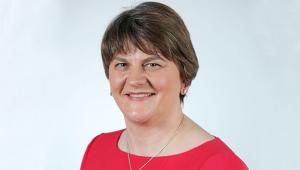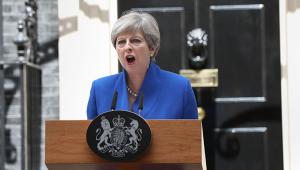The current finance minister in the Northern Ireland Executive is now expected to replace Peter Robinson as first minister in the new year after Robinson announced he would step down after a deal to resume power-sharing in the devolved administration was reached last month.
In her acceptance speech, Foster said politics in Northern Ireland should not now be dominated by constitutional arguments.
“The Assembly debates issues every week, our ministers answer thousands of questions. How many of those debates or questions are about the Union or the border or the constitution? Very few if any,” she said.
“Instead, they focus on issues like health, education and the economy. Put simply, they reflect the issues that concern our citizens most.”
It was a sign of success that this was now the case, but the people of Northern Ireland don't want to hear their politicians “squabbling about issues that seem unconnected to their daily lives”, she added.
“They want to know that when they work hard and pay their taxes that their government is doing its best to ensure that their children get a good education, that their parents will get the healthcare they need when they need it and that they will be supported if times get tough.”
Northern Ireland is in better days than could have been imagined in the deepest, darkest days of the Troubles, she said.
“As far as we have come in recent times we know we have further to go. The Northern Ireland of 2015 is an infinitely better place than the one of the 1970s or 1980s but we have not yet reached our full potential. I want to see us achieve much more.”
Foster’s election came on the day she delivered a balanced budget for Stormont in 2016/17, a commitment in the Fresh Start Agreement that restarted the Executive. The budget protects health and social care as well as providing an additional £40m for education and £5m for skills.
She said: “The outcome of the Spending Review and the severely constrained timescale to deliver next year’s spending plans alongside structural changes from 12 to nine departments means I have had to construct a 2016/17 budget position in very challenging circumstances.”
She added that the move to cut the number of departments was “not without its own difficulties”, so there would be additional budget flexibilities available.
“The one-year budget will give new departments and new ministers a stable, balanced platform to determine priorities and funding allocations post the May election for a multi-year budget from 2017/18 to 2019/20.”




















